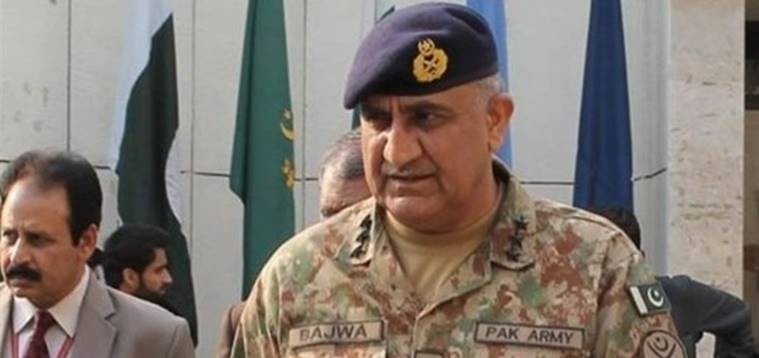PHOTO: The new head of the Pakistani Army, General Qamar Javed Bajwa
EA’s Umer Karim writes:
In the end, it was the dark horse who became Pakistan’s Chief of Army Staff of Pakistan. General Qamar Javed Bajwa, fourth in the merit list among the candidates, was finally selected by Prime Minister Nawaz Sharif. The most senior among the candidates, General Zubair Hayat, was nominated for the prestigious but symbolic post of the Chairman of the Joint Chiefs of Staff Committee.
So what does Bajwa’s surprise ascent to the top mean for the Pakistan Army and Pakistani politics? Look to Pakistan’s relationship with India for the answer.
General Bajwa has long been working in the important 10th (X) Corps, the primary force that monitors the situation along the Line of Control dividing Indian- and Pakistani-administered Kashmir. As a brigadier, worked as the Chief of Staff of the Corps, the most important brigade-level position in the Pakistani military as he both kept an eye on the Kashmir theater and observed politics in Islamabid. As a major general, he was force commander of Northern Areas, another strategically important and India-centered posting. Finally, as Lieutenant General he was given charge of the 10th Corps.
General Bajwa is a military strategist vis-à-vis India. In contrast to other senior generals, he has little experience in counter-terrorism and has not commanded any operational deployments in the insurgency-hit areas of northwest Pakistan.
The insurgency, led by the Tehreek-e-Taliban Pakistan, has been routed during the tenure of the previous head of the Army, General Raheel Sharif. With most of the kinetic action over, forces are mainly involved in combing operations in these areas. So now the primary focus of the Pakistan military is on adapting back from a transitional counter-terror role to its conventional job of a defensive force against India.
The most important of the new appointments made by General Bajwa has been the promotion to the Chief oF General Staff of Major General Bilal Akbar, the Director-General of Sindh Rangers, a unit aiding civil law enforcement institutions in combating terror and crime in Pakistan’s commercial hub and biggest city Karachi.
Akbar worked under the Corps Commander of Karachi, Lt. General Naveed Mukhtar, who formerly was head of the counter-terrorism wing of Pakistan’s intelligence agency ISI. Both men are credited not only with acting against insurgents in Karachi but also with breaking the back of political elements supported by Indian intelligence. The militant wing of Karachi’s largest political entity, Muttahida Qaumi Movement, was dismantled with large numbers of arrests. This has been hailed as a major achievement for Karachi’s law and order and economic life.
Akbar has been promoted to Lieutenant General and given the most coveted position in the General Headquarters of the Pakistan army. General Naveed, his senior partner has been made Director General of ISI. He is third consecutive officer appointed as head of ISI after leading operations in Karachi.
This embodies the importance of the city for Pakistan’s leadership, but it also suggests that the political and military emphasis is on men who have crafted strategies vis-à-vis India. Bajwa has been involved in hard power strategy against the perceived physical threat, while Akbar and Naveed have been countering Indian influence through its proxy elements in Pakistan.

